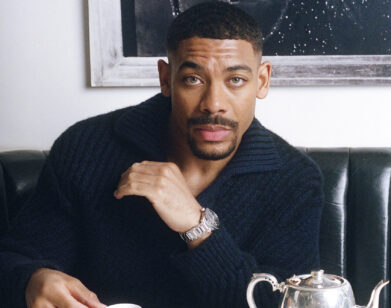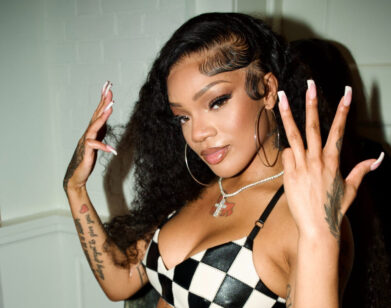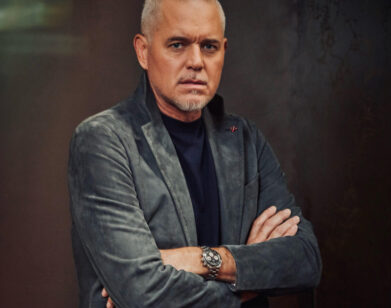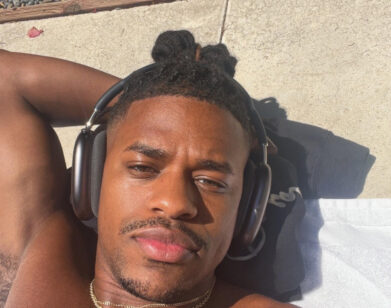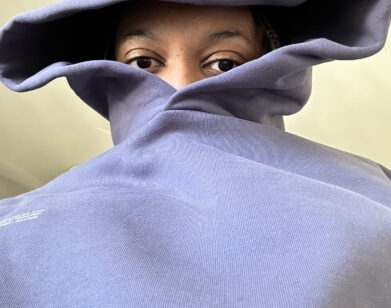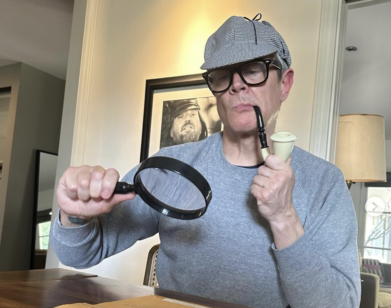Labrinth Talks to Zendaya About Creative Evolution and the Future of Euphoria
Earlier this year, HBO’s summertime hit Euphoria launched a small galaxy of stars into orbit. There was Hunter Schafer. Barbie Ferreira. Sydney Sweeney. The guy who plays Fez. And then, of course, there’s Zendaya, already a very famous human when the show premiered last June, but one who, as the drug-addled teenager Rue, revealed an angst we hadn’t seen before. But there was also another star who emerged during the Euphoria craze, who despite not appearing on screen once, left a profound imprint on the show’s DNA.
Labrinth, the 30-year-old British musician, helped bring the show to technicolor life with his hallucinatory score that leapfrogged across genres, employing everything from crashing EDM drops to soaring gospel vocals. The result was a soundscape that helped make the show’s highs higher and its lows lower. Labrinth, who’s real name is Timothy Lee McKenzie, was an established London-based writer and producer when Euphoria creator Sam Levinson approached him to compose music for the show, having worked with artists like Ed Sheeran and Beyoncé, with whom he cowrote the song “SPIRIT” for the live-action The Lion King remake. Before his work on Euphoria made him something of a household name, Labrinth formed a supergroup with Sia and Diplo, releasing Labrinth, Sia & Diplo Present… LSD, a sign that he was ready to emerge from the studio and front his own projects. That came to fruition in November, when Labrinth dropped his first solo album in seven years, Imagination & The Misfit Kid, a collage of sounds and styles brought together by Labrinth’s uncanny knack for melody and mood. It seems, for Labrinth, the stars are finally aligning, and as he told Zendaya over the phone last week, he’s just beginning to set his “creative stardust.” Call it cosmic.
———
LABRINTH: Hello, darling. You alright?
ZENDAYA: I’m good, how are you?
LABRINTH: I’m sweet, man.
ZENDAYA: I’m glad I get to interview you today.
LABRINTH: What the hell are you going to ask me?
ZENDAYA: I have some thoughts. Where you at right now?
LABRINTH: I’m in my studio in London that I made in my garden. It’s a bit like a man cave-slash-studio. It’s pretty dusty. There’s cobwebs all over the place. There’s spiders just crawling out every five minutes.
ZENDAYA: Cozy. That’s where the magic happens.
LABRINTH: Exactly. I’ve got spiders helping me finish the record.
ZENDAYA: What are you working on right now?
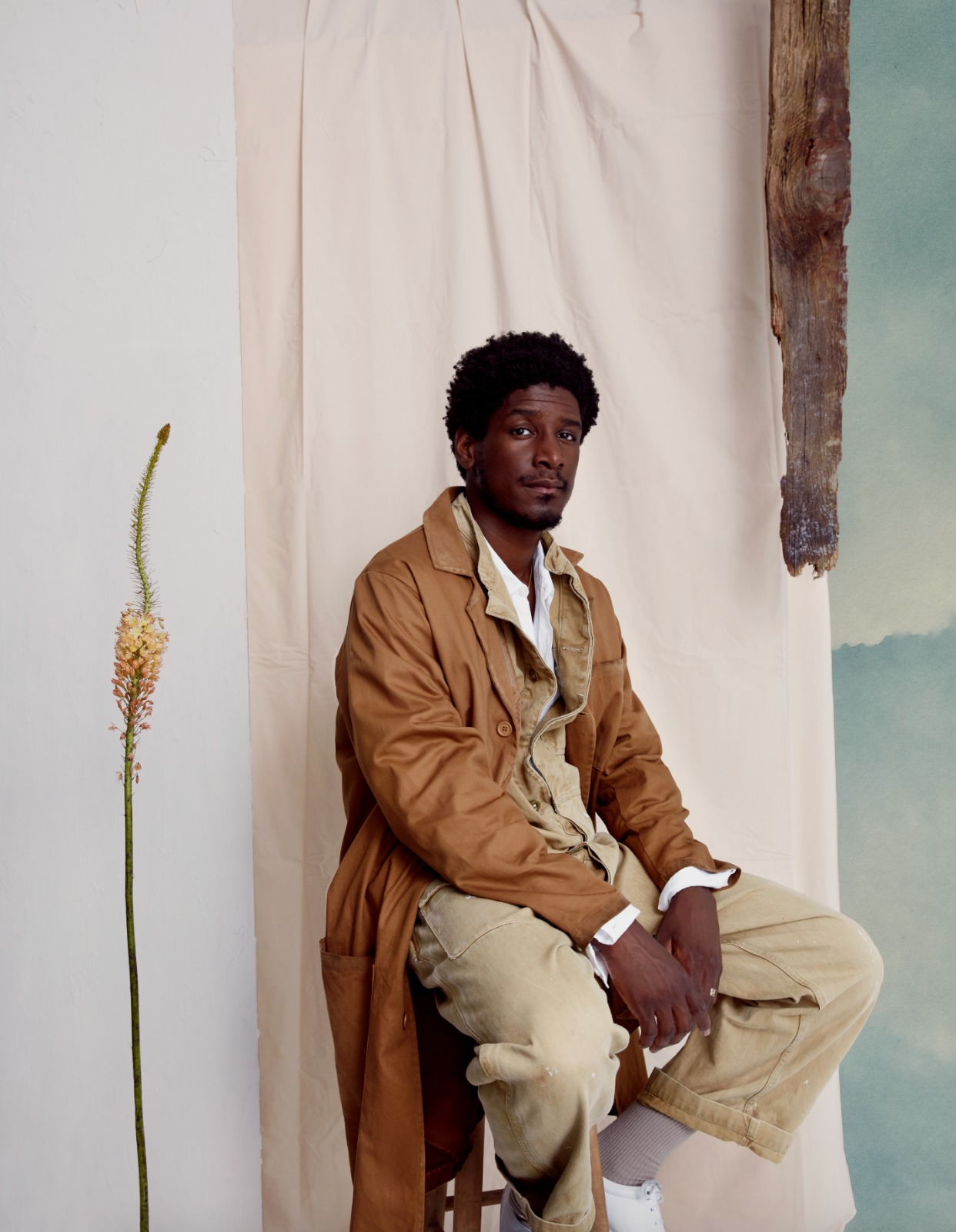
LABRINTH: I’m working on music for season two of Euphoria.
ZENDAYA: Have you read anything?
LABRINTH: No, but Sam [Levinson] has been inundating me with music, just like, “Lab, check this out.” I think he sent me like 20 tracks. I’m really excited because I get a chance to refine what I didn’t do before, if that makes sense.
ZENDAYA: What could you possibly have not done before?
LABRINTH: I don’t know. Have you ever looked back at some of the stuff you’ve been in and was like, “Next time I get a chance…”
ZENDAYA: Yeah, but it didn’t sound like that!
LABRINTH: But you smash it, though. I’m looking at what you did, and I’m like, “If I can do that musically, then I’ll be happy.”
ZENDAYA: I feel like you did, because I remember the day that Sam came in and we were all on set, and he told us that you were going to possibly do the scoring, but that you’re busy doing other things. And then he showed you the pilot and you got inspired. Then he played us “When I R.I.P.” and literally, the whole cast went nuts. I’ve never experienced music that fit something so well. If we could turn our show into a sound, that is what it would sound like. We were all trying to get ahold of that song. Even now when I listen to the Euphoria soundtrack, it’s such an emotional experience. There’s songs I have to skip because it’s too much.
LABRINTH: There’s something about the way that he creates creativity and ideas that just instantly sets your creative stardust. And I feel like you get it.
ZENDAYA: I completely understand. There’s some people that are just good at what they do, and make you want to try harder.
LABRINTH: Do you feel like it’s mental? To become more in tune with what you are and what your true purpose or gift is, you almost have to be able to face yourself in the mirror and become more in tune with who you truly are. And then because you’re doing what you’re truly meant to do, it’s going to be as beautiful as a bird flying, because that’s the most natural thing for a bird. But to us, that looks like magic. When I see you doing your thing, it feels that natural to me.
ZENDAYA: What about the fan reaction? I would text Sam like, “Yo, everybody’s freaking out. They want the rest of the songs.” I knew they were going to do an album, but I was like, “Yo, that’s so much work.” You had to put together this massive album, and you told me that some songs just started as ideas that you would send over, and then you have to finish them.
LABRINTH: I was forced to finish some of them, because I advised everyone early on, “I’m kind of making songs as well, so people might want them.” And they’re like, “No, man, it’s just a score.” And I was like, “Okay, cool.” And then Twitter and Instagram started going crazy. I was working on this song that I did for Beyoncé on The Lion King, and I was like, “Yo, everyone, this song for The Lion King just came out,” and they’re like, “Where the fuck is the Euphoria soundtrack?”
ZENDAYA: That’s hilarious. I know your album just came out, and that’s extremely exciting. I can’t understand how you were able to do both at one time. I know that “All For Us” was your song that somehow became a Euphoria song.
LABRINTH: You helped me finish “All For Us.” Sam showed me you guys working on it, but he was like, “Lab, we need the rest of this song.” The story of Rue wanting to get clean and her trying to make sure she lives up to what her family and people want her to be, that made me go, “Okay, I know what this is.”
ZENDAYA: Is there a sonic difference when you’re scoring something versus a song that’s for yourself? Do you embody a different character?
LABRINTH: Making music is the same as acting for me. So for me to embody a character, or a spirit of a person, to almost method act, musically—that’s what happens to me. What would Nina Simone do? How would I do Nina Simone if I was Lab doing Nina Simone? But when I’m involved in different projects, I can feel the energy of that project. Euphoria, for example, was definitely that teenage intense pressure and heavy depression because of that pressure, the element of beautiful ugliness in that way of growing up. The song for The Lion King, that’s a more pop, commercial record. So I feel like I take on different characters when I write these things.
ZENDAYA: What’s cool about your music is sometimes it’s genre-less. It’s a fusion of eight different genres in one song, and I think that’s really hard to pull off.
LABRINTH: I think that’s been a hard thing for me, and I think film has been maybe the best home for my stuff. I’ve had records that are commercial, but commercial music is based off of demographic and scene. So for people to connect to a sound, sometimes it’s about an energy, and if I’m just being this weird guy in the corner, it takes time for people to even understand what I’m doing. I’m okay with that, but that was really scary when I first started.
ZENDAYA: How long have you been working on the new album?
LABRINTH: I made an album before this album, and it didn’t end up going out, because everything that could happen in that moment happened, and it was preventing me from being able to release music. I stopped fighting against the tide, and was just like, “Great, let me just let life go where it needs to go, and it will figure itself out.” I had a lot of pressure, because I had success in Europe and Australia and other parts of the world, and so everybody was trying to capitalize on what I did. They were like, “Lab, stay in that lane. Keep doing more of that.” But musically, I have ants in my pants, and that was scary for a lot of people around me. I had a lot of pressure to turn what I was doing into McDonald’s. I ended up working on The Weeknd’s album, I did some stuff on Ed Sheeran’s album, me and Noah Cyrus wrote a record.
ZENDAYA: And then you felt like you were ready to do your own shit.
LABRINTH: Every time I tried to really get music going, it just wasn’t working based on the circumstances, labels, all that kind of unnecessary stuff. And then I was just like, “Okay, cool, this is where life is right now. And then life was like, ‘It’s time now.’”
ZENDAYA: You evolved where you needed to.
LABRINTH: That journey helped me become confident and powerful in what I know I am.
ZENDAYA: Right.
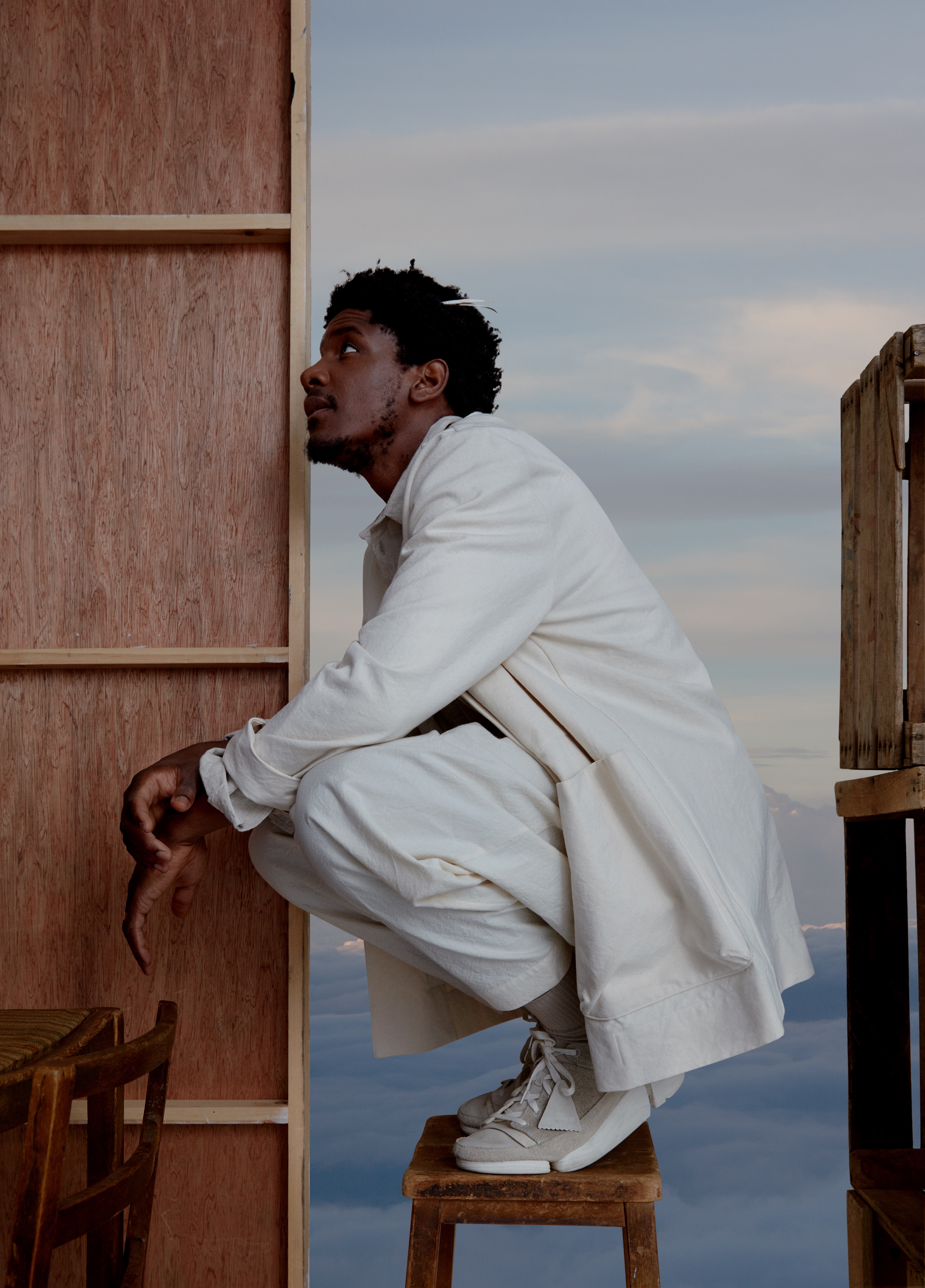
LABRINTH: How do you feel about rolling back into Euphoria?
ZENDAYA: I can’t wait. I’m literally counting down the seconds. Honestly, I’m going crazy.
LABRINTH: You’ve read the new scripts?
ZENDAYA: Yeah. I talk to Sam every other day. I read four scripts that are fucking brilliant. I don’t know if you know this, but he wrote like four or five scripts, and then scrapped them all and rewrote everything. I talked to him yesterday for a few minutes, and then he’s like, “Alright, I’m going to go get back to it.” I’ll text him, “Hey, just checking in. Hope you’re good. What’s going on? Can you send me anything?”
LABRINTH: The last time I spoke to him, he said he was going in. I know he’s going in because he wasn’t answering my manager, who’s his good friend, and my manager was like, “Sam’s just fucking disowned me.” And I’m like, “Bro, he’s doing his creative process. Don’t worry about it.” But he just doesn’t get it, so he’s crying right now.
ZENDAYA: When did you first start putting out music?
LABRINTH: I made an album when I was 17 with this kid, who was this wacky rapper-slash-indie artist. I produced his whole album. That’s when I got my start. The album did terribly, but it wasn’t even about me. It was just weird music. Even when I listen back, I’m like, what the hell was I trying to do?
ZENDAYA: That’s funny.
LABRINTH: I remember the first time I heard my track on the radio, I was sitting in my local kebab shop, and I jumped out of my chair and was like, “That’s my music!” And everyone was looking at me like, “Yeah fucking right.”
ZENDAYA: When did you make your first shit that was just yours?
LABRINTH: On that album that came out seven years ago. I was producing first, then I started playing my music to labels, and pitching to other artists. At that time I also had a number one record in the U.K. with Tinie Tempah.
ZENDAYA: Right. And then between that, you did the LSD thing.
LABRINTH: After the long journey that we were talking about, I wrote a song with Sia, and we just really hit it off. We decided years later, “Let’s get together and just write some more songs.” We ended up writing 10 songs. And it was like, yeah, this is an album. And my manager was like, “You guys have pretty much written an album.” And she was like, “I’d love to do an album with Lab.” And I remember seeing Diplo at the Brits, and we swapped numbers like artists love doing. We love giving our numbers and saying, “Let’s do something,” and then never do it.
ZENDAYA: That happens all the time.
LABRINTH: Yeah, it’s like, “Let’s chop it up, baby! Let’s get on a track!” And then everyone gets caught up in their lives, and it’s gone. In that moment, Diplo was like, “Hell, yeah, I want to work with Sia. Hell yeah, I want to work with Lab.” I don’t know how he’s in every studio in the world. It’s just wild. That was the moment that was like, “You are free.” Life said, “It’s time now. We’re going to the next phase.” LSD felt like a celebration of the next phase of my life.
ZENDAYA: Do you prefer doing it on your own, or do you like being collaborative with people?
LABRINTH: I love both, but it depends on the artist. Sometimes in the studio with an artist, they’re insecure, so it creates more ego in them. They sit in the studio, and it’s like, “I don’t like that. And I want this, and do that.” And you’re like, “This is not creative energy. This is ego energy.” And anytime there’s ego energy in the studio, I’m kind of like, “I’m out. I can’t do it.” I’m more inspired when the person is really creative and free, and mentally free. Then I’m in.
ZENDAYA: That’s something we talked about, being able to be creatively free, and knowing that maybe not everything is going to sound perfect the first time around, and just keep throwing things at the wall until they stick.
LABRINTH: If we’re talking about it from a magical point of view, if the magic and the stardust comes from the universe as pure as it is, then our pride and our ego and our social pressure edits that stardust because we’re trying to save ourselves from failure or rejection. That’s what I feel happens with music sometimes. You’re preventing yourself from rejection, or, from a financial point of view, you’re trying to prevent failure. So you’re like, “I need to make a hit, and this isn’t much of a hit, so I’m going to alter that stardust so it correlates with that world.” I like to work with artists that are not afraid of abandoning that ship.
ZENDAYA: It’s the same thing when it comes to being on Euphoria. There really is no other option but to be fearless and not edit yourself. I guess the difference is we’re playing characters, and in music there’s nothing to hide behind. But when you’re acting a scene, if it’s real and you’re doing it right, it feels like it’s happening. It feels like you’re going through a new feeling, and it’s just as personal, and you have to abandon the idea that maybe you look stupid, or all those, like you said, social pressures and ideas that you have about yourself.
LABRINTH: Have you ever felt like that?
ZENDAYA: Yeah. I guess you could say I’m a perfectionist. I like being in control of my surroundings, and I don’t like to be embarrassed. I think that there’s no room for that in art, to be worried about that kind of embarrassment. If you don’t look crazy, then you’re probably not doing it right.
LABRINTH: I love that you’re saying that because that’s something I’m really working on, to be fearlessly ugly, and not care, and just be fearlessly wrong and fearlessly stupid. To be beautifully uncomfortable. I enjoy that freedom and that peace in your head where you can be at your most uncomfortable, and still be at peace.
ZENDAYA: I feel like towards the end of Euphoria, I was just getting my groove. All of us felt that way. And as soon as we felt like we were in a groove, and it was like, we’re in this shit, that was when it was like, “All right, we’re done.” That’s why I’m excited to go back to it. The first season of going into Euphoria was me proving to myself that I could do it. And from now on, it’s improving.
LABRINTH: That’s what I was talking about earlier, the refinement. I’ve proven to myself that I can compose something. Now it’s about refining it. And I’m excited about that.

